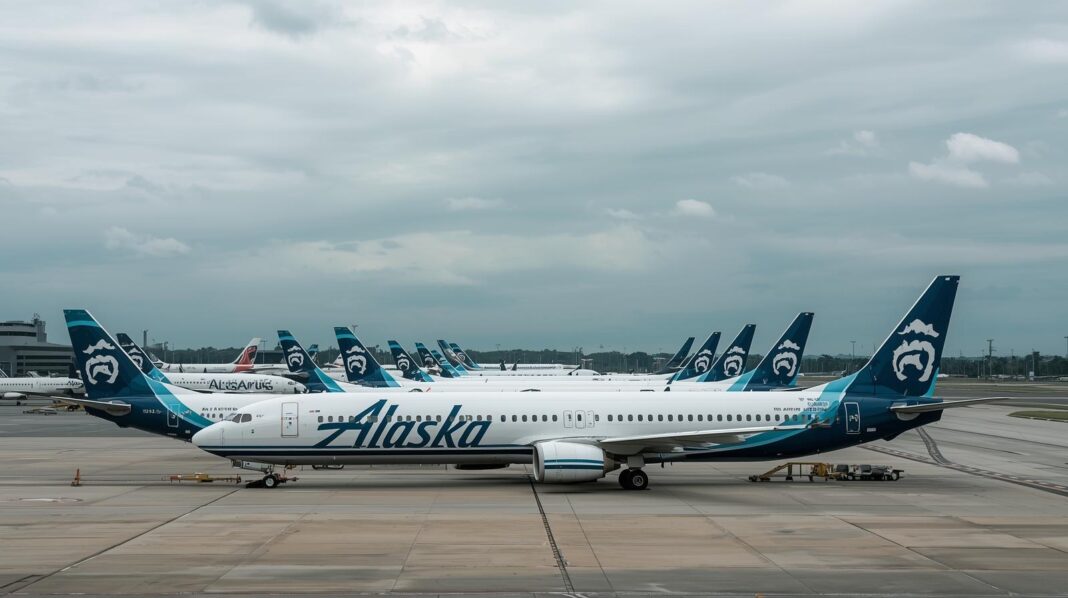Alaska Airlines was forced to cancel more than 360 flights after a major IT outage crippled its operations across North America.
The problem, traced to a hardware failure at the airline’s primary data centre, grounded flights for several hours and stranded thousands of passengers.
Though Alaska confirmed the disruption was not caused by a cyberattack, the consequences were severe: airport terminals filled with frustrated travellers, cascading delays across connecting hubs, and financial losses running into millions of dollars.
The incident exposed just how dependent modern airlines have become on digital infrastructure — and how fragile that dependence can be.
When Technology Becomes the Weak Link
Today’s airlines operate through a web of interconnected systems: ticketing platforms, crew scheduling tools, maintenance databases, and flight-tracking software. Each relies on real-time data flow.
When one component fails, the entire operation can grind to a halt.
In Alaska’s case, a simple data centre malfunction effectively grounded the airline’s fleet. Pilots couldn’t access flight plans, dispatchers couldn’t release aircraft, and passengers couldn’t check in.
The message was clear: a glitch on the ground can stop the skies from moving.
This disruption illustrates a truth for the global logistics and aviation sectors — digital efficiency brings vulnerability. What was once a competitive advantage has become a potential single point of failure.
Why This Matters for Africa’s Aviation Future
Africa’s aviation industry is rapidly digitizing. Airlines and logistics operators are adopting cloud-based ticketing, digital cargo tracking, and AI-powered scheduling tools to improve efficiency and reduce costs.
Yet, as Alaska’s experience shows, without robust IT resilience, modernization carries risk.
Many African carriers still rely on third-party data providers and shared infrastructure hosted offshore.
A single failure — whether from hardware malfunction, cyber breach, or connectivity breakdown — could disrupt operations across entire regions.
The continent’s push toward digital logistics makes building redundant systems, backup data centres, and local IT capacity more critical than ever.
Building Digital Resilience: Key Lessons for Africa’s Airlines and Logistics Operators
-
Invest in Redundancy: Duplicate critical systems and maintain local data backups that can take over instantly during outages.
-
Prioritize Cyber and IT Audits: Regularly test data recovery processes and ensure vendors meet aviation-grade reliability standards.
-
Develop Local Infrastructure: Strengthen partnerships with African data-centre providers to reduce dependence on overseas servers.
-
Enhance Communication Protocols: Transparent updates to passengers and cargo clients can preserve trust during disruptions.
A Wake-Up Call for the Skies
Alaska Airlines’ IT failure was not an isolated event — it’s a warning. As global and African airlines race toward digital transformation, resilience must become part of the flight plan.
The future of aviation depends not only on new aircraft or green fuels but also on the strength of the digital systems that keep fleets connected, cargo moving, and passengers flying.
In a world where one IT glitch can ground an entire airline, the lesson is simple: technology must serve the skies, not stop them.
Also Read
Inside Tesla’s Q3 Earnings Miss: Price Cuts, Profit Drops, and the Robotaxi Gamble
Inside Meta’s AI Reshuffle: Why 600 Jobs Were Cut in the Race Toward Superintelligence
